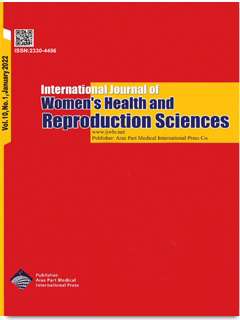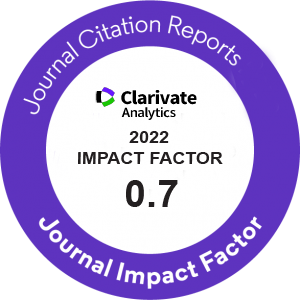| Original Article | |
| Social Capital and Related Factors in Women With Gestational Diabetes Mellitus in the North of Iran | |
| Jila Ganji1,2, Elham Yousefi Abdolmaleki3, Mansoureh Afzali4, Sedigheh Hasani Moghadam5 | |
| 1Department of Reproductive Health and Midwifery, School of Nursing and Midwifery, Mazandaran University of Medical Sciences, Sari, Iran 2Department of Reproductive Health and Midwifery, Sexual and Reproductive Health Research Center, Mazandaran University of Medical Sciences, Sari, Iran 3Department of Internal Medicine, Faculty of Medicine, Mazandaran University of Medical Sciences, Sari, Iran 4Department of Midwifery, Mazandaran University of Medical Sciences, Sari, Iran 5Master’s Student in Midwifery Counselling, Student Research Committee, Mazandaran University of Medical Sciences, Sari, Iran |
|
|
IJWHR 2022; 10: 019-024 DOI: 10.15296/ijwhr.2022.05 Viewed : 1776 times Downloaded : 1589 times. Keywords : Social capital, Related factors, Gestational diabetes mellitus |
|
| Full Text(PDF) | Related Articles | |
| Abstract | |
Objectives: Gestational diabetes mellitus (GDM) is one of the most important medical conditions in high-risk pregnancies. Social capital is one of the essential factors affecting the prevention and control of diabetes and the blood glucose level. The purpose of this study was to investigate the level of social capital and its related factors in GDM in the north of Iran. Materials and Methods: This cross-sectional study was conducted on 212 GDM women who referred to diabetes centers at Razi hospital in Ghaemshahr and Imam Khomeini hospital in Sari in 2019. The women were selected through the convenience sampling method. The data collection tools included Medical-Demographics Information Form and Onyx-Bullen’s Social Capital Questionnaire. Finally, data were analyzed by SPSS (version 25) using descriptive and inferential statistics (multiple regression analysis). Results: The results of this study showed that the mean (standard deviation, SD) of age for GDM women was 29.28 (±5.75). The majority of women (58%) had an academic education. The mean (SD) of social capital was 96.46 (±21.17). Based on the results, a positive and significant correlation was observed between spouse’s education (lower than high school, P = 0.001 and academic education, P = 0.001), wife’s occupation (employee, P = 0.015), spouse’s occupation (employee, P = 0.027), and fasting blood sugar (FBS) (P = 0.048), as well as a significant negative correlation with 2-hour FBS (P = 0.048), 1-hour postprandial glucose level (P = 0.001), economic status (dissatisfied, P = 0.42), overweight (P = 0.009), and obesity (P = 0.020). Conclusions: The social capital of GDM women is influenced by various socio-economic factors. According to the findings of this study, women who are economically disadvantaged, overweight, obese, and at high blood sugar levels are at greater risk of rejecting treatment due to low social capital, resulting in poor blood sugar control. Therefore, interventions related to promoting social capital in these groups should be pursued more vigorously, and strengthening of social capital and its influencing factors should be considered as one of the main approaches of health promotion. |
Cite By, Google Scholar
Google Scholar
PubMed
Online Submission System
 IJWHR ENDNOTE ® Style
IJWHR ENDNOTE ® Style
 Tutorials
Tutorials
 Publication Charge
Women's Reproductive Health Research Center
About Journal
Publication Charge
Women's Reproductive Health Research Center
About Journal
Aras Part Medical International Press Editor-in-Chief
Arash Khaki
Mertihan Kurdoglu Deputy Editor
Zafer Akan























